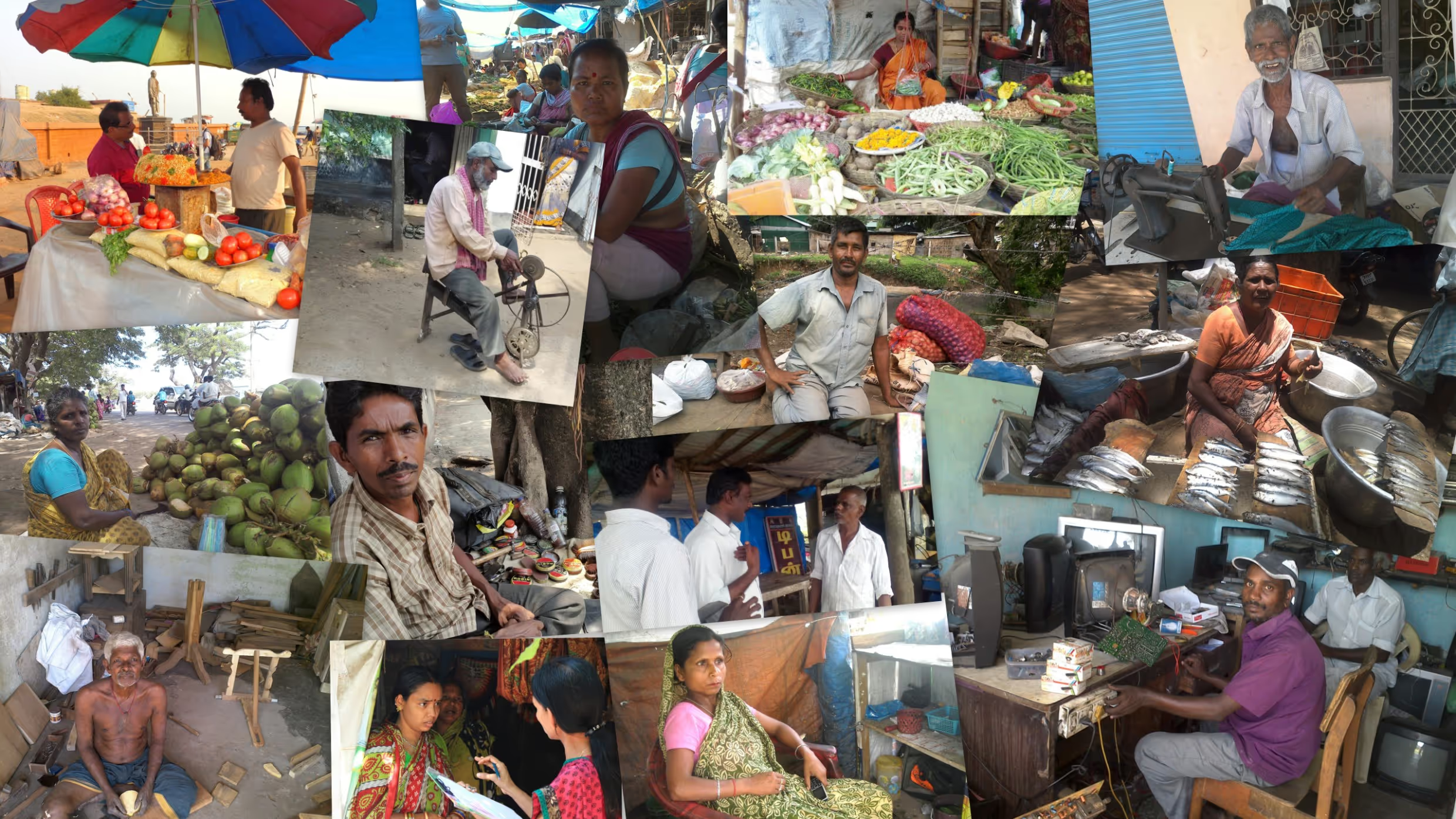Launching Disaster Microinsurance Scheme Based on Demand Survey

In the context of DRR, resilience is the ability to quickly recover from the adverse impacts of a disaster. At the local level, resilience translates into the capacity of goods and service providers to successfully overcome the exigencies brought on by a disaster and maintain function. Thus, enhancing resilience at the local level becomes synonymous for enhancing the capacities of the stakeholders at the local level to effectively respond to a disaster/emergency.
This project aims to enhance the capacities of the stakeholders at the local level by providing them access to a risk transfer mechanism. The project aims to aid the local market recovery by piloting a disaster microinsurance scheme with small and informal businesses from three cities of India: Puri (Odisha), Guwahati (Assam), Cuddalore (Tamil Nadu). This project has hitherto successfully conducted demand surveys among the small businesses in all the three locations. The purpose of these surveys was to map out the demand for a disaster microinsurance scheme and then design a scheme for the small businesses.
The United India Insurance Company (UIIC) is the insurance partner for this project. After analyzing the data collected through the demand surveys, the UIIC has helped in developing a microinsurance scheme suited to the needs of small businesses in the aforementioned three cities.
Having factored in the findings from the demand surveys, a disaster microinsurance product has been designed for small and informal businesses of the project site – Puri, Odisha state. This microinsurance scheme covers all types of natural calamities, fire, burglary along with personal accidents – PTD, PPD (Permanent Total/ Partial Disability), Death. A detailed breakup of this product is as follows:

Puri, Odisha will be the first urban location where the aforementioned disaster microinsurance scheme will be launched. The scheme will be launched with 782 clients (small and informal business owners) who have been selected through the random sampling research method while the equally sized control group without insurance will also be followed. This randomized controlled trial was done to eliminate any bias in the selection of the clients and outcomes.
The next step in launching the disaster microinsurance scheme will be the orientation of the clients. This orientation will be done through Focused Group Discussions. In groups of 10-12 clients, these clients will be oriented on the various aspects of the insurance scheme, from the premium amount to the total coverage offered. These FGDs will be conducted in collaboration with the local partner, viz. SWAD.
An FGD guideline document has also been prepared to ensure standardization and quality of the FGD process. These guidelines will help to highlight the importance, background, do's and don’ts, coverage and limitations, immediate steps and the claim process, etc. The objective of these FGDs is to allow the clients to fully understand the benefits and the limitations of the microinsurance scheme in a clear and concise manner. After launching the disaster microinsurance scheme in Puri, the project team will reach out to the remaining two sites for creating an insurance product based on the demand survey findings, viz. Guwahati and Cuddalore.
Resilience is often viewed as the ability of local level stakeholders to effectively overcome the adverse impacts of a disaster. In this respect, enhancing the capacity of such stakeholders forms an important aspect of disaster risk reduction and adaptation to climate change. The team is hoping to build resilience for small and informal businesses and measuring the local market recovery in the aftermath of disaster.
Stay updated
Sign up for our newsletter to receive regular updates on resources, news, and insights like this. Don’t miss out on important information that can help you stay informed and engaged.
Related articles


.png)
Explore Elrha
Learn more about our mission, the organisations we support, and the resources we provide to drive research and innovation in humanitarian response.